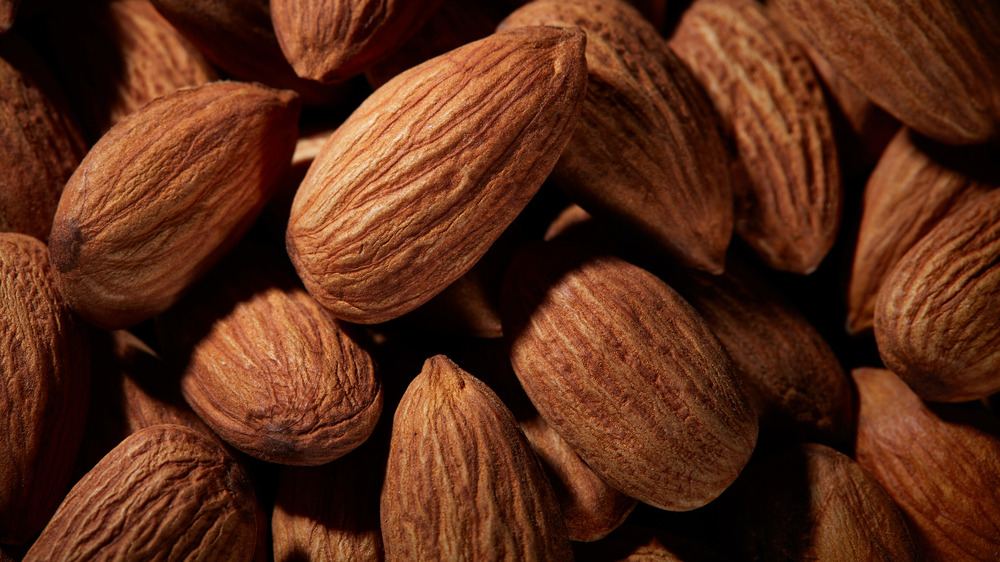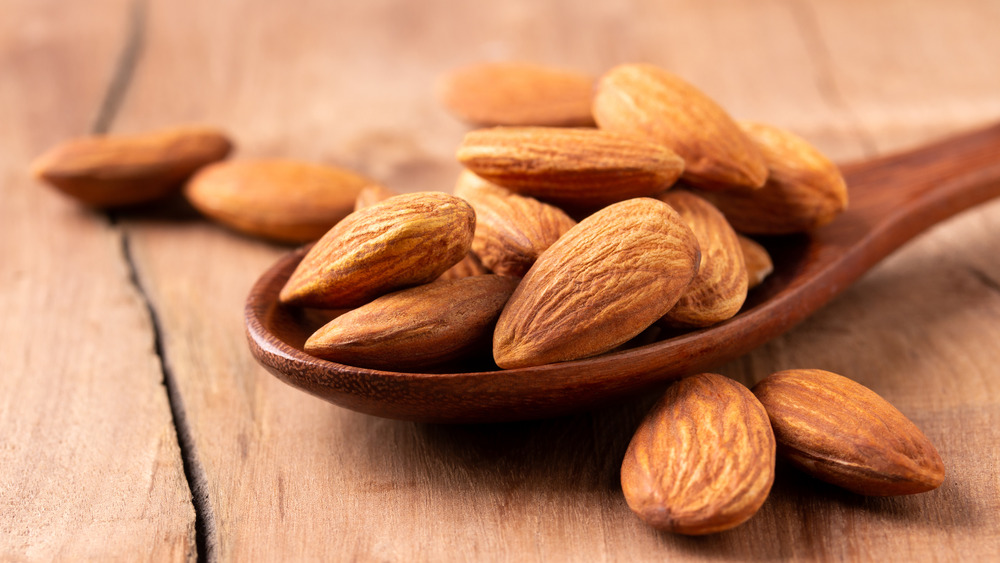The Regular Serving Size For Almonds Is Smaller Than You Think
Replacing your mid-day junk food snack for a bag of almonds may seem like a no-brainer. Almonds are packed with nutrients, vitamins, antioxidants, and all that stuff that is supposed to be good for you (via Healthline). In fact, they have so many health benefits that Healthline even goes so far as to claim that almonds are nearly perfect when it comes to food items. Plus, some studies suggest that when eaten in recommended portions, almonds might actually help with weight loss.
However, believe it or not, even the most perfect foods have their limitations. Nutritionist Heather Hanks spoke with HuffPost and cautioned that digging into a bag of almonds with no cap on how much you eat in one go may not be the best idea. She suggests that the ideal serving size of raw almonds is actually a lot smaller than you think. In reality, you should only really be eating about 12 almonds per serving.
What happens if you eat too many almonds?
An ounce of almonds contains 164 calories and 14 grams of fat, according to My Food Data, so if you don't keep your almond serving in check, it can quickly add to your daily calorie intake. Livestrong further warns that almonds are high in manganese and an ounce makes up for 27 percent of your daily manganese intake. Consuming too many almonds can cause the manganese level in your blood to spike which may interfere with certain prescription and over-the-counter drugs.
Livestrong also explains that while almonds are rich in vitamin E and fiber — both normally good things — an ounce of almonds makes up for 50 percent of your daily vitamin E and almost all of your daily fiber intake. If you often exceed recommended portion sizes, almonds can lead to a vitamin E overdose (yes, that's a thing), constipation, and bloating. Almonds also contain oxalate, an anti-nutrient that binds to minerals and forms crystals. While usually these crystals pass through your body without causing any harm, they can sometimes collect in the kidneys and form kidney stones. If you are on a low-oxalate diet, definitely keep your almonds to 11 a day to prevent kidney stones from forming (via The University of Chicago).
Whoever knew consuming too much good stuff could also be bad? While you don't have to count out exactly 12 almonds every time you eat them, Hanks recommended to HuffPost that you should stick with a small handful.

